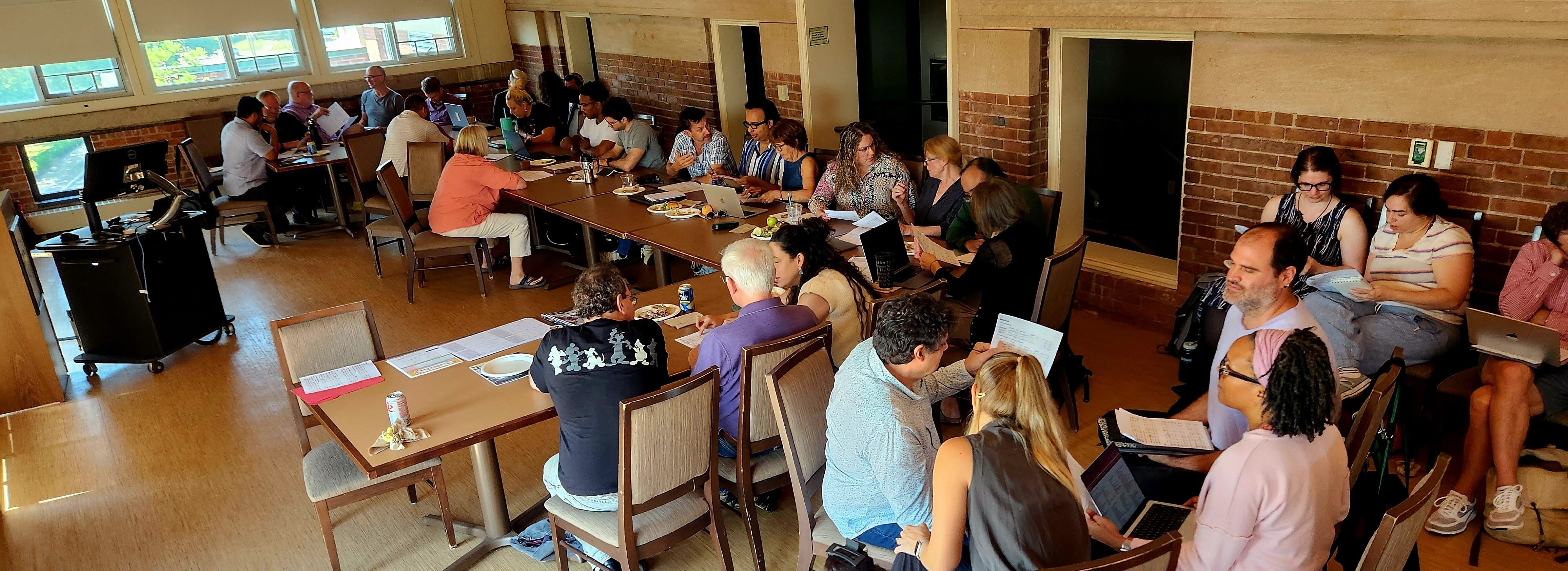Innovative Teaching
Wesleyan has many, many spectacular teachers doing extraordinary things inside and outside their classrooms. In our classes, it is common for students and faculty to end the semester transformed—they see the world in a new light, find a new purpose for their life, make a new lifelong friend, or just feel like they’ve been enriched and are in a better position to make a positive contribution to society and the planet.
These are the kinds of courses that we all aim to develop, and we seek to teach them every semester—tinkering here and there with an old standard that works well, building a new class from scratch from the germ of an idea, or going way out on a limb to try something very different. Successful, life-transformational classes often take on a “standard” format where a professor lectures to students, or everyone sits around a seminar table and engages in high-level intellectual conversation. Most of us have been lucky enough to have experienced one or more of these standard-and-also-extraordinary classes either as a student or as a teacher or both. We know what those classes look and feel like.
This page gathers examples of non-standard pedagogy. These are classes and projects that you hear about it and think: How in the world did that work? I would LOVE to try that in my class! I never would have thought of doing that, but what a fabulous idea!
Below are a set of links to some of the extraordinary, innovative, and unusual classes and projects that have been taught and developed in the last few years. If you want to find out more about any of them, we encourage you to contact the instructor directly.
Community-Engaged Courses and Projects
- Students from Introduction to Design and Engineering (IDEAS 170) co-taught by Greg Voth and Daniel Moller collaborated with nearby Renbrook School to design a new playscape for their children.
- Access to Civil Justice (GOVT 379), taught by Alyx Mark in partnership with several community partners gives students the opportunity to reflect on challenges related to judicial access in the United States and take concrete measures to ameliorate some of those challenges.
Embodied Learning
- Creative Campus Initiative pairs arts faculty with non-arts faculty to collaborate in the development of new courses and new course modules. 2020-21 courses.
- Science Choreography is a collaboration with the Liz Lerman Dance Exchange to use dance to teach about science.
- Japanese politics (GOVT 296) taught by Mary Alice Haddad uses a movement workshop to explore Japanese conceptions of the environment.
Digital Storytelling
- Lisa Dierker uses digital storytelling to teach her introductory psychology (PSY 105) course.
- Rachael Barlow’s Integrative Learning Project offers students the opportunity to bring together different dimensions of their Wesleyan experience into a single place.
- Students in Mary Alice Haddad’s East Asian Studies Proseminar (CEAS 201) used video essays to explore topics ranging from the Philosophy of Zhuangzi, to the DMZ, to the glories of bubble tea.
Arts Projects in Non-Arts Classes
- Black Phoenix Rising—A Black Phoenix Rising Art Experience led by Tony Hatch emerged from a CHUM 300 course and explored black people’s ways of resisting material and symbolic death in American life and culture.
- In Memory of Life on Earth—For their final projects in Victoria Smolkin’s Politics of Death (HIST 318) course students designed memorials from the perspective of people (e.g., an exile, a refugee) who no longer inhabits this earth.
Video Final Projects in Non-Film Classes
- Students in History of Rock and R&B (MUSC 108) taught by Eric Cherry created music videos for their final projects.
- Naho Maruta’s Intermediate Japanese (JAPN 205) class created an introduction to Wesleyan—in Japanese
